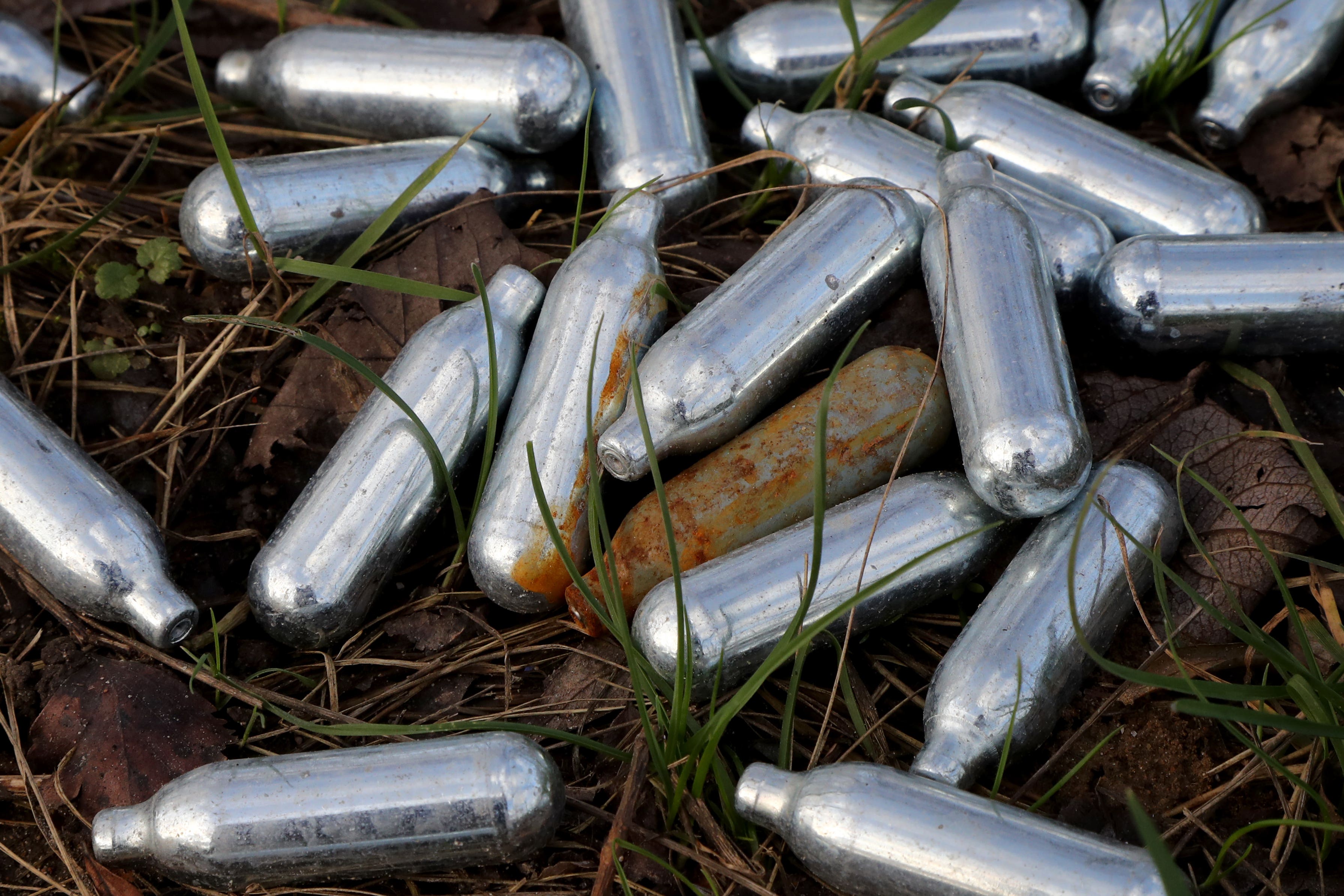Laughing gas study reveals shock side effects on users
Almost one in ten 16-24 year-olds have used nitrous oxide in the past year

Laughing gas can cause nerve damage in young adults and teenagers, a study has revealed.
The study looked at 119 young people who were hospitalised with neurological issues caused by laughing gas. The most common symptom experienced, affecting 85 per cent, was pins and needles in the arms and legs, caused by spinal cord and peripheral nerve damage.
Other symptoms experienced include bladder and bowel difficulties, erectile dysfunction, poor balance and the sensation of an “electric shock” in the spine.
The study, conducted by Queen Mary University of London, examined the effects of laughing gas, also known as nitrous oxide, on users with an average age of 22 who were treated in three hospitals in London, Manchester and Birmingham in 2022 after using large quantities of the drug.
Some of the patients were as young as 14, and three-quarters were male, inhaling between the equivalent of 318 and 2,800 canisters of laughing gas each week.
The study also found that young people harmed by nitrous oxide are most likely to be Asian men, suggesting they may have a genetic susceptibility to nerve damage caused by exposure to the gas.
“The predominance of cases with Asian ethnicity may highlight genetic, dietary, or nutritional predispositions to neurological damage from N2O exposure, but also may indicate social circumstances predicating use,” the study said.
Almost one in ten 16-24 year-olds have used nitrous oxide in the past year, and it is the second most common drug used by the age group in the UK, after cannabis.
It is widely used as a pain relief drug in humans and animals during child-birth or dental treatment, but it is increasingly being used as a recreational drug.
In March, the government announced its intention to ban laughing gas in a crackdown on anti-social behaviour, with plans to make it a Class C dug before the end of 2023.
The findings were published in the Journal of Neurology, Neurosurgery & Psychiatry.
Subscribe to Independent Premium to bookmark this article
Want to bookmark your favourite articles and stories to read or reference later? Start your Independent Premium subscription today.

Join our commenting forum
Join thought-provoking conversations, follow other Independent readers and see their replies